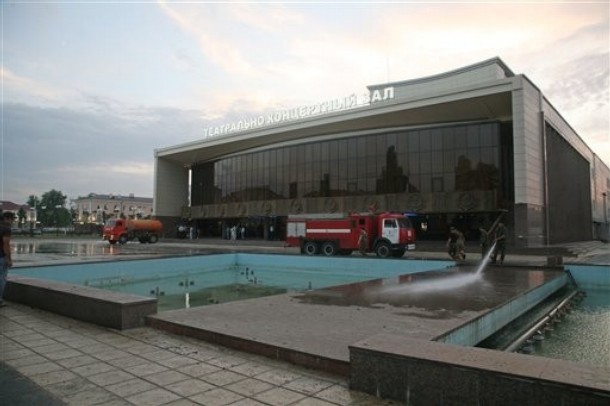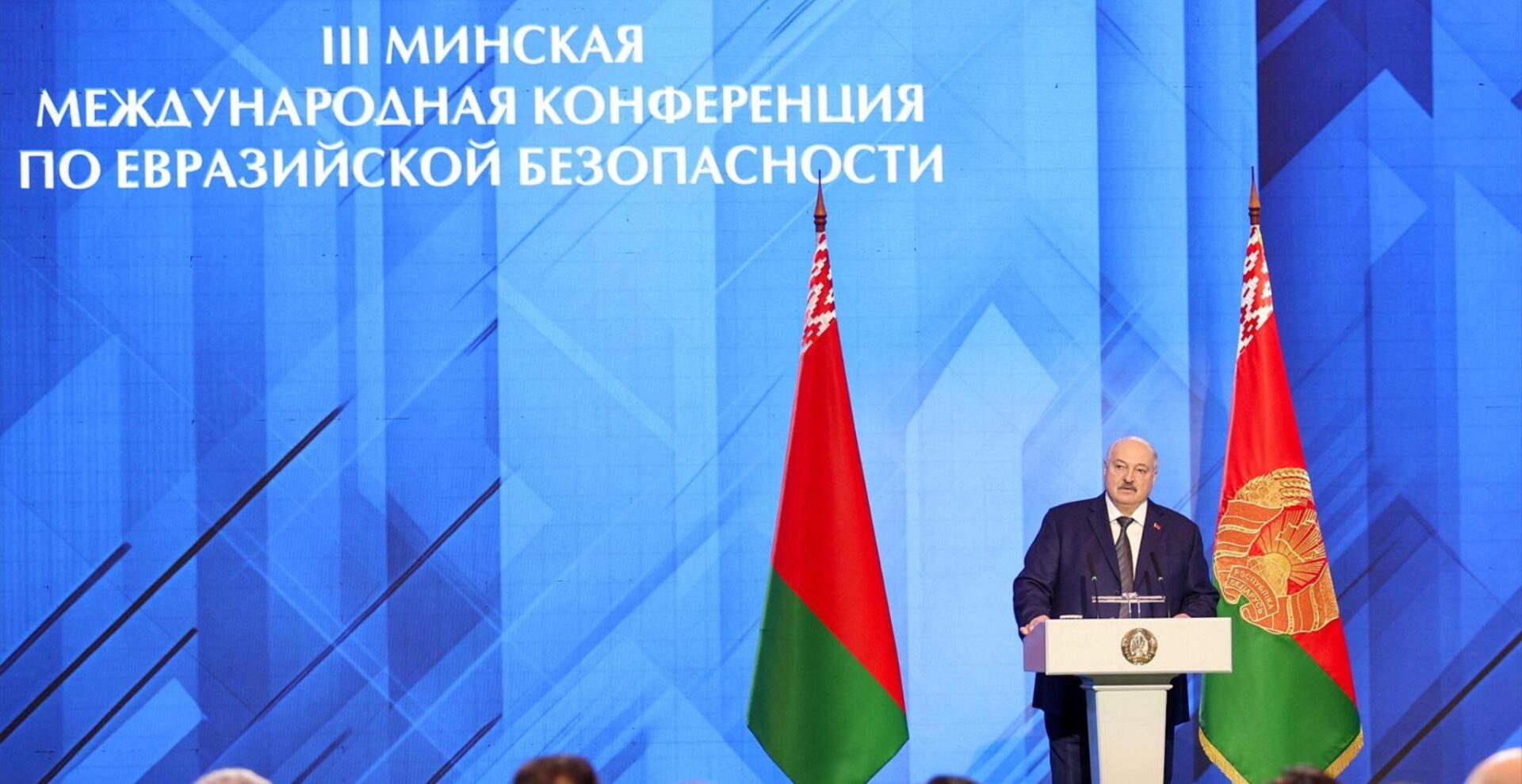
Moscow Increasingly Frustrated With Grozny
Moscow Increasingly Frustrated With Grozny
The federal government in Moscow may be growing increasingly frustrated with the Chechen leadership. Despite frequently repeated and vocal claims that life in Chechnya has returned to normal, in reality the launch of large-scale operations targeting the insurgency across the republic suggests a new wave of rebel activity in Chechnya. Moreover, it can be said that the insurgents are not always acting as aggressors, and some of their operations are indeed retaliatory strikes provoked by the actions of the pro-Moscow government of Chechnya.
To wit, the local government has reacted very strongly to the second suicide bomber attack targeting the police force. On July 26 Rustam Mukhadiev, a 21-year old native of the city of Argun, blew himself up near a theater in Grozny, killing four high-ranking police officials (deputy head of the interior ministry in Grozny, Police Lieutenant-Colonel Ismail Bisultanov, deputy head of public security department of the Leninsky district interior ministry, Police Lieutenant-Colonel Rezvan Gaidabayev, Police Major Mayram Tsugayev, and the visiting representative of the neighboring republic of Adygeya’s interior ministry apparatus, Police Lieutenant-Colonel Alexander Kuznetsov) as well as two construction workers from Turkey and Georgia who happened to be nearby (www.polit.ru, July 27).
The investigators claimed that the suicide bomber had served with the rebels since 2007. Suicide bombings as a tactic of the resistance movement have been revived by its underground leadership. In his recent public statement, the leader of the Chechen insurgency, Doku Umarov, confirmed that the resistance movement will continue to use suicide attacks in their struggle. In addition, Umarov mentioned that dozens of his men stand ready to become suicide fighters (shaheeds), which allowed him to announce the revival of the Riyadus Salikhiyn battalion (Gardens of Believers) in his video address on April 25 – the group that has already gained notoriety during the siege of the Dubrovka theater in Moscow on October 23-26, 2002 (www.kavkazcenter.com, June 9).
According to the separatists, the suicide fighter battalion has dedicated units across all fronts. For instance, Ameer Muslim, commander of the Shalinsky sector, announced that his sector alone has up to 20 suicide fighters ready to strike against the law enforcement agencies at any time. He added that the latest suicide attacker who detonated his bomb in the Chechen capital was a fighter under his command, and that the man was chosen randomly among several insurgents. As for the target of the attack, in all likelihood it was President Ramzan Kadyrov, and not necessarily the policemen (www.kavkaz.tv, July 31).
According to Kadyrov, the rebel who blew himself up in front of the theater was trained by one of the chief ideologues of the resistance movement, the so-called sheikh Said of Buriatia (Regnum, June 30). Kadyrov claimed that that those recruiting young people to join their cause are simply using them as cannon fodder. The attack is currently being investigated by the police and other agencies, and the guilty parties will be prosecuted to the fullest extent of the Russian law, the president added (Grozny information agency, July 30). It is also worth noting that a similar explosion on May 15 killed two policemen near the interior ministry building in Chechnya and wounded several civilians (www.newsru.com, May 15).
In a disturbing trend, since the start of the large-scale military operation targeting the rebels, many of the recently killed insurgents happened to be shot near roadblocks. It is not quite clear why the militants suddenly left their shelters in the woods and the mountains and began to drive through Chechnya’s roadblocks in such large numbers. A more likely explanation is that the casualties are simply innocent victims of the Chechen police, who claim that the killed were rebel fighters (Caucasus Weekly Monitor, July 27). Since the launch of the massive operations near the Chechnya-Ingushetia border in May the casualties are already numbered in dozens, in stark contradiction to Kadyrov’s claim that the insurgent forces are no more than 70 men strong (www.kasparov.ru, May 17).
The federal government might have an additional reason to complain: namely, the botched assassination attempt on Issa Yamadaev on July 28 in Moscow (www.newsru.com, July 31). Yamadaev, whose brother Sulim was assassinated in Dubai (United Arab Emirates), has warned repeatedly that he may become a victim of hired killers. Although Issa was not openly involved in any anti-Kadyrov schemes, he could not remain unaffected after the death of his brother Sulim. Unwittingly, he could become a potential leader and a magnet for the anti-Kadyrov groups frustrated by the unrestricted power of the Chechen president.
According to other reports from Chechnya, the goal of the attack was to eliminate all three surviving Yamadaev brothers, whether or not they are involved in politics, in order to eliminate any possibility of a future blood vendetta. After the death of Jabrail, Khalid and Sulim the three surviving Yamadaev brothers include Issa, Mussa and Badruddin, and are the main thorn in Ramzan Kadyrov’s side after insulting him in person. Whether Kadyrov has or has not personally given the order to kill them is not the issue; rather, it is obvious that all overt and covert enemies of Ramzan Kadyrov today are being eliminated by "certain" individuals using high-profile, scandal-prone methods, both inside and outside the country. This time the killer was arrested, and if he names the person who gave the order, no one would be surprised if the name of someone close to Kadyrov is disclosed. Obviously, Moscow does not support those tactics, but there will never be a shortage of people who want to do a personal favor for the Chechen president, and it is the efforts of these people that may become damaging to Kadyrov personally.
Meanwhile, President Dmitry Medvedev’s Chief of Staff Sergei Naryshkin echoed the views of other high-ranking Russian officials when he admitted that, "the threat level of extremism and terrorism in the country remains high" (www.grani.ru, July 24). This is particularly true for the North Caucasus as the public conscience of the indigenous peoples in the region is becoming increasingly influenced by nationalistic sentiments. The Kremlin’s policies in Chechnya are the key catalyst for this trend, and it is likely to grow in the region for the foreseeable future.


